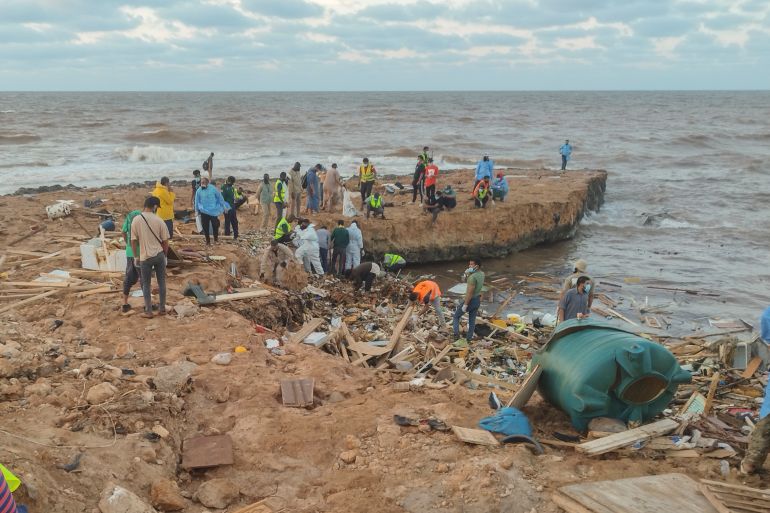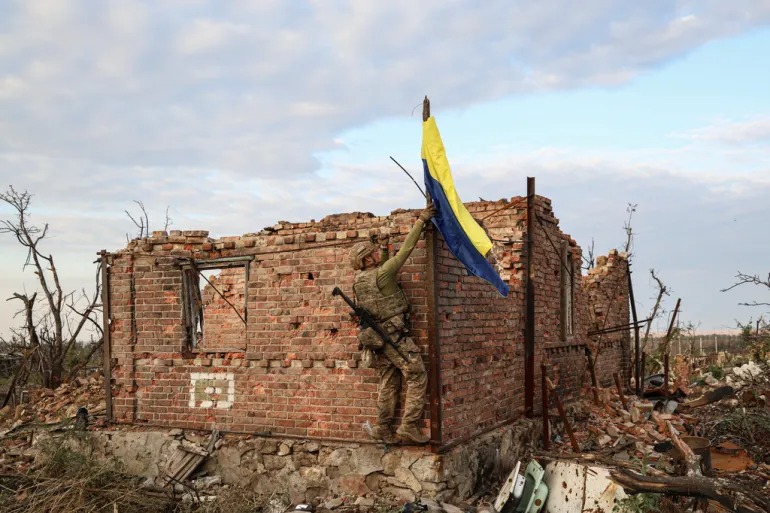A week after a catastrophic flash flood, likened to a tsunami, wreaked havoc on the Libyan coastal city of Derna, the international community has rallied to support survivors and accelerate rescue and relief efforts. Tens of thousands of residents, grappling with trauma, are now homeless and desperately in need of clean water, food, shelter, and essential supplies. Amidst mounting concerns of cholera, dehydration, malnutrition, and the discovery of thousands still missing, United Nations agencies have issued a grave warning. This catastrophe, which has claimed thousands of lives, was triggered by the torrential rains brought on by the hurricane-strength Storm Daniel that battered Libya on September 10.
Dire Humanitarian Crisis Unfolds
As Derna struggles to cope with the devastating aftermath of the flood, an estimated 30,000 residents find themselves homeless in the city alone. The United Nations agencies have sounded the alarm, emphasizing the urgent need for clean water, sustenance, shelter, and basic provisions. With cholera, diarrhea, and malnutrition looming as imminent threats, residents are enduring unimaginable hardships. A resident, Hamad Awad, expressed the collective anguish, saying, “Thank God for giving us patience. I am sitting here trying to clean and verify who is missing. I am trying to understand the situation. I did not leave.” The health minister of the eastern administration, Othman Abdeljalil, somberly confirmed that the death toll in Derna had reached 3,252 people, with UN agencies reporting a higher estimated death toll of approximately 11,300 people.
A City in Ruins – Counting the Losses
The scale of destruction in Derna is staggering, with approximately 891 buildings completely destroyed and 211 partially damaged out of a total of 1,500 damaged buildings. Another 398 buildings lie submerged in mud. These harrowing statistics, disclosed by Badr Al-Din Al-Toumi, head of the government’s emergency response team, paint a grim picture of the city’s plight. Evacuation plans, already marred by the region’s political divisions and the destruction of crucial infrastructure, are further complicated by the presence of rival governments in Libya. Roads, essential for delivering aid, have been severely damaged, hindering relief efforts.
International Aid Efforts Surge
International humanitarian organizations and nations around the world have stepped in to extend a helping hand. Despite the challenges posed by the fractured political landscape of Libya, emergency response teams and aid have been dispatched from France, Iran, Russia, Saudi Arabia, Tunisia, Turkey, and the United Arab Emirates. France is in the process of setting up a field hospital to provide much-needed medical care. The United Nations has launched an appeal for over $71 million to support relief operations. The aid being sent includes water, food, tents, blankets, hygiene kits, medicines, emergency surgical supplies, and heavy machinery to clear debris, along with an ample supply of body bags.
Libya’s catastrophic floods have not only exposed the dire need for immediate assistance in Derna but also highlighted the challenges posed by political fragmentation and infrastructure deficiencies. As the world rallies to provide aid and support, the focus remains on alleviating the suffering of the survivors and reconstructing a city torn asunder by nature’s wrath. In the wake of this disaster, questions arise about whether preventive measures could have spared Derna from this tragedy, with dam issues dating back to 1998. For now, the international community’s response aims to provide solace and hope amidst the despair that engulfs the beleaguered city.
















